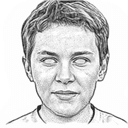Sunday's elections in Turkey are being widely regarded as among the most consequential in the country's modern history. The first fair multi-party vote in 100 years is scheduled for May 14, featuring an opposition led by ex-civil servant Kemal Kilicdaroglu and a main challenger committed to further democratization.
The candidates aim to roll back President Erdogan’s perceived "one-man rule" while addressing economic mismanagement issues. Recent polls show Kilicdaroglu leading Erdogan in the presidential race; however, if none of the three candidates surpasses the 50-percent threshold, a rerun will be held within two weeks.
In addition to selecting a president, voters will also appoint 600 members of parliament for five-year terms. Twenty-four political parties are contesting these elections. Among them is Millet İttifakı (Goodttilite), which consists of six major parties including Demok Party (Felicity Party), which holds considerable influence within center-right politics.
Two additional parties have been founded by former ministers who seek to make their mark on this crucial election cycle. With such high stakes surrounding these historic democratic processes, Turkish citizens and international observers alike eagerly await their outcomes.
Kemal Kilicdaroglu expressed optimism regarding his chances against Erdogan during a recent interview: "We're fighting for democracy and transparency that has long been absent from our nation," he said. "Our plan is not only about defeating one man but also about establishing strong institutions capable of serving all Turks."
As Turkey prepares for its monumental electoral decision on Sunday, it remains uncertain whether change will come swiftly or if existing power structures will prevail once more. Regardless of outcome, this definitive moment serves as both a testament to Turkish resilience and as an opportunity for charting new courses toward progress and prosperity.
